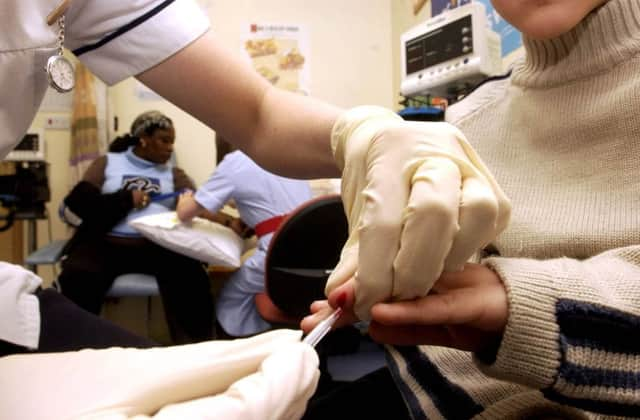‘Unacceptable inequality’ in diabetic care


Diabetes Scotland has published its annual report charting the variations in care for people living with the condition across the country. About 276,000 people in Scotland have been diagnosed with diabetes, with a further 45,500 estimated to be unaware they have type 2 diabetes, the charity said.
Its report looked at how health boards are performing in delivering nine essential checks for people with type 1 and type 2 diabetes, such as recording blood pressure, cholesterol and weight as well as testing kidney function.
Advertisement
Hide AdAdvertisement
Hide AdNHS Greater Glasgow and Clyde (NHSGGC) was found to be below the Scottish average in the majority of the categories while NHS Orkney came out as the best performing three times.
Jane-Claire Judson, national director of Diabetes Scotland, said: “It is indefensible that people living with diabetes are subjected to such disparities of care across Scotland.
“Whether you live in Orkney or Forth Valley should have no bearing on the level of care a person receives but what we are seeing are significant differences in the percentage of people receiving each of the nine essential care processes dependent on the health board area in which they live.”
She added: “We must focus on improving diabetes care for all, reducing avoidable complications, and supporting people to live well with the condition which should include offering a range of appropriate education opportunities.
“If action is not taken now, the longer-term costs will be severe to people living with the condition, NHS Scotland and wider society.”
The report also revealed people with type 1 diabetes receive poorer care than those with type 2.
Its authors looked at other factors and said there were poorer health outcomes for people living in areas of deprivation.
They said: “The healthy lifestyle interventions required to reduce the number of people from deprived areas developing type 2 diabetes, and support people to live well with the condition, have to reflect the realities of the environment in which people live.
Advertisement
Hide AdAdvertisement
Hide Ad“This includes removing real and perceived barriers, ensuring people living with the condition are enabled to attend healthcare appointments and that they receive all nine care processes. People must be supported in a realistic, practical way to make improvements to their health.”
A spokeswoman for NHSGGC said the health board was “fully committed” to continuously improving the care people with diabetes receive.
Public health minister Maureen Watt said: “We know that the number of people living with diabetes in Scotland is increasing. However, this is not because we are seeing an increase in the number of new cases of diabetes picked up every year, but rather that people with diabetes are living longer.
“Latest figures show that for the first time we are seeing the percentage of people with poor glucose control decreasing and more people than ever accessing crucial screening checks.”